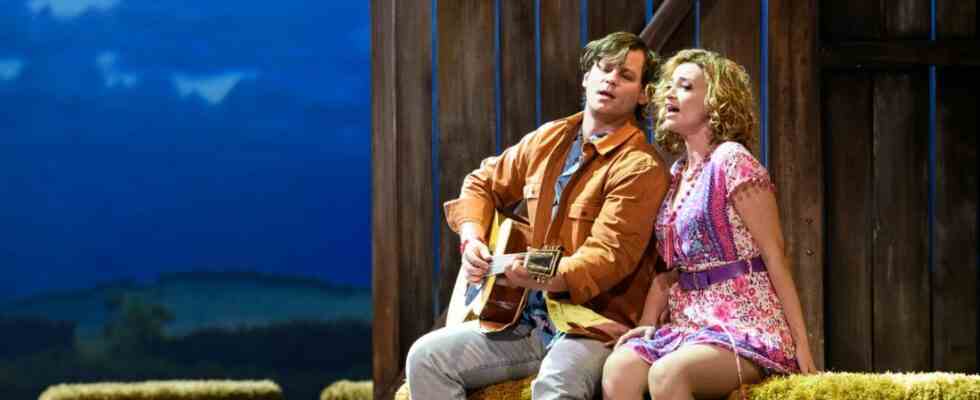Actually, Rubén Dubrovsky will only be chief conductor of the Gärtnerplatztheater from the coming season. But he is already amazingly present in this one, directing the first and the last premiere. “The Rake’s Progress”, the opera by Igor Stravinsky about the morally dubious rise and rapid fall of a youngster in 18th-century London, should suit him. Finally, the neoclassicism of the score is based on models from baroque music, in which Dubrovsky has a lot of experience. It is all the more disappointing how pale his conducting is in the first season premiere: Dubrovsky beats rhythmically precisely, but finds too few variants in articulation and phrasing. Above all, he misses the desire to play with styles, the ironic, parodistic, and also exalted moment that such a retrospective from 1951 contains. In the chamber music texture, the wind instruments of the Gärtnerplatzorchester in particular could play more soloistically, for which a future chief conductor would have to encourage them, create the space for them. But the tempi are often too fast for that, sometimes just fleeting, which are probably supposed to help the lighter voices in the house.
Touching only when he slides into the thin air of madness: tenor Gyula Rab as Tom Rakewell.
(Photo: Jean-Marc Turmes)
Gyula Rab’s is definitely too easy for the title role: His fine, but also narrow tenor touches when Tom Rakewell glides into the thin air of madness at the end. It lacks the colors for the lustfully daredevil nature of the first two acts, and it simply lacks penetrating power. Mária Celeng, on the other hand, is stylish and remains true to him as Ann Trulove to the end: her soprano voice is flexible and yet dazzling, moves confidently through the high technical requirements and at the same time gains expressivity from them, hits the girlish but determined character of the character. Otherwise, the Gärtnerplatztheater, often justifiably proud of its ensemble culture, seems to be hardly able to cast the opera in full roles: Matija Meić, who as the devilish Nick Shadow would have to put the title hero on the wrong track, compensates with strength for what he lacks in demons. And Anna Agathonos does not have enough ease in rapid text passages for the oblique Turkish baba, who changes between the sexes. How everyone involved developed so little interest in speaking (neo)classical English that one could have played in German right away. In smaller roles, Ann-Katrin Naidu (Mother Goose) and Juan Carlos Falcón save the honor of the ensemble with a pointed appearance as Sellem.
Adam Cooper, who is often active as a choreographer at the house and has already made a name for himself as a director with his fluffy production of “Candide”, relocates the opera to London in the 1980s: Tom Rakewell grows up on rural haystacks with the guitar in his hand, creates in the big city the rise to pop star. Together with the Turkish baba he denies his own show, the wedding with her also shoots him into the sky of attention. This setting is correct in terms of content, but aesthetically it is a problem. Because all the punks, mods and goths in Alfred Mayerhofer’s costumes look like they’ve stepped out of what must have been an exciting eighties city theater production. Where opera borrows from pop, it quickly becomes suspect of trying to appear cool – which makes it reliably uncool. In any case, it would be too much to claim that this evening rocks.

